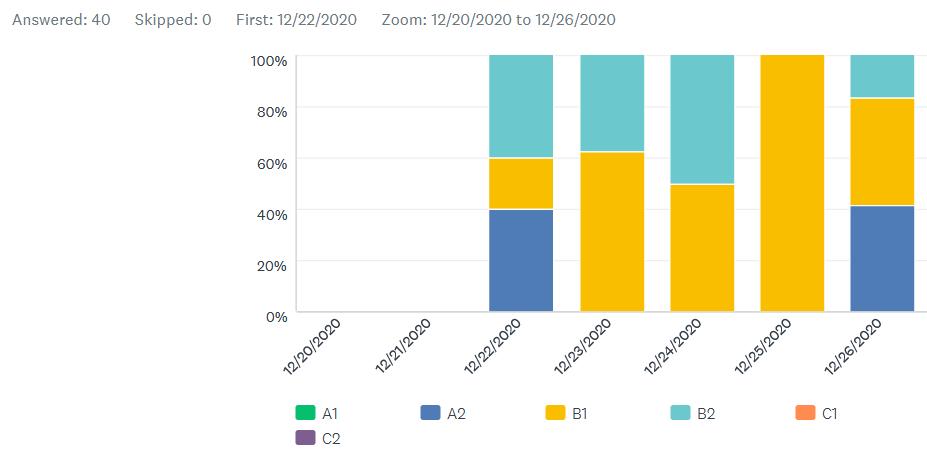2.5 Course outcomes 2.5.1. Outcomes for course participants
(a) Language confidence The feedback shared in the course outcome sections of the individual reports evidence the impact that the PRELIM experience has had on the language confidence of those involved. Of note is that expectations of language improvement are probably misplaced, and given the short courses that were the PRELIM projects, this is not surprising. This is worth bearing in mind when considering the objective of language confidence. As noted by many of the CPs, the opportunity to interact in English outside of the classroom is limited in a number of the contexts of the participating professionals. Indeed, as a participant in Brazil shared, ‘this is the first time I’ve spoken in English with someone’. The creation of an English-speaking online community, even one as relatively short-lived as the PRELIM course (although see below for sustainable initiatives), provided the chance to experience communication in a safe environment. For some this had a tangible impact on their classroom practice. A Georgian teacher explained that ‘I try to speak more English during the lesson, I give students instructions in English, I advise them to try to ask their questions in English and if they can’t, I help them to translate their questions’. This suggests that on short courses, language confidence is more effectively supported through attitudinal shifts rather than level improvement. In Cameroon, for example, a teacher asserted that ‘I am no more stressed as before; I was scared of making mistakes in front of my students. Thanks to the course, I feel more confident and can teach a whole lesson without using French.’ If this is the case, and the evidence in the reports appears to suggest it is, then the environment of supportive partnership created by the UK institution, the English Teacher Association and the participants has a key role to play in this affective learning. When a Cameroon participant shares that ‘there wasn’t a lesson we had that we didn’t end up laughing’, this is not just about having a good time, but is indicative of a confidence-building learning community, even where it was a first-time experience – ‘highlights from Indonesia so far has been that fact so many have commented on how good it is to speak to UK-based teachers, but more importantly with teachers all over their own country for the first time ever!’ (Sheffield/TEFLIN).
(b) Methodology confidence We have noted the weaving of methodology exploration into many of the courses. Numerous CPs disclose shifts in their professional confidence as a result. When Pakistan teachers ‘start to ask more questions and open up more about their bad teaching experiences or when things did not go to plan’ and increasingly ‘ask why we do things a certain way’ (OIEG/SPELT), this suggests that within a short space of time it is possible to encourage comfort with the uncertainty that underpins reflective professional practice. A focus on activities which promote fluency and positive encouragement on the courses is recommended in a number of the reports and it is argued that ‘experiencing this approach inspired participants to view their own teaching differently and work with learners in new ways’ (Bell/BRAZ-TESOL). The effectiveness of this experiential learning is suggested by comments such as this from a Thai teacher – ‘I will think and create my lesson to my students fun and don’t make them afraid of mistaking in using English.’ The focus on awareness of affective learning revealed here is echoed by the teacher in Palestine who asserts, ‘I have to include my students’ reaction, my concerns about implementing different activities and how I can handle them in other situations.’ The reference here to the impact that the PRELIM experience is having on current classes is a noticeable theme of the feedback from the CPs. One strength of remote courses, which became apparent for many of the project partners, is that they can occur alongside actual teaching practice, opening up the possibilities for minor informal action research, or at least active experimentation and reflection. In India for example, a teacher reported that ‘my favourite part of the course was sharing the ideas and activities that each teacher has done in the following class’. New approaches to supporting students with their writing were tried in a classroom in Georgia – ‘I had problems with my student when they had testing they didn’t use to write small simple essay. They used to leave this place empty. With the help of this course, they began to write step by step; now I know how to simplify task for them.’
Partnered Remote Language Improvement (PRELIM) project report
18

















